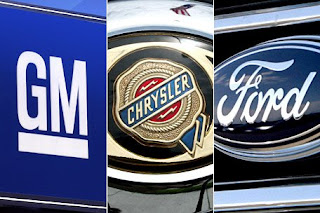
*This post on trade represents my personal opinions.
Sometimes, it feels like Mr. Obama’s honeymoon period is ending before he even takes office. In an op-ed published earlier this week, Jagdish Bhagwati absolutely
savages Barack Obama on trade issues. I am a huge fan of Dr. Bhagwati. He is one of the greatest trade economists and one of the most unrepentant defenders of free, multilateral trade. His work has shaped my own views on trade more than any other single thinker.
Dr. Bhagwati chides Mr. Obama for his “eloquent silence on trade issues” and his tepid support of the Doha Round. He also criticizes the auto industry bailout (
no disagreement here), which he believes will be WTO-incompatible, and dismisses Obama’s trade team as a pack of under-qualified, semi-protectionists.
His most interesting argument is against America’s bilateral/regional trade strategy. In Dr. Bhagwati’s eyes, powerful union lobbies and other political forces have produced a trade agenda in which the US negotiates standard-laden agreements with small, poor and comparatively weak countries. The standards, in areas such as environment and labor issues, effectively undermine the smaller partner’s areas of comparative advantage. He characterizes this “free but fair trade” and “an exercise in insidious protectionism that few recognise as such.” Ouch.
As an aside, I wonder how Dr. Bhagwati reconciles this novel argument with the fact that every single one of these bilateral agreements was negotiated by a Republican administration and narrowly passed in Congress by Republican legislators, over the vigorous opposition of Democrats and organized labor?
In any case, the economic logic of Dr. Bhagwati’s arguments cannot be ignored. The US, and the world, would best be served by the successful conclusion of the Doha Round. In terms of regional agreements, negotiating bilateral deals with small trade partners is an exercise in economic futility: any positive gain is a drop in the vast ocean that is the US GDP.
Trade, however, is as much a political issue as it is an economic one. This is unfortunate, but it isn’t very useful to assess trade issues without considering the political ramifications. Dr. Bhagwati acknowledges this: “history shows that the freeing of trade is nearly impossible to achieve in times of macroeconomic crisis.” In assessing where Mr. Obama will fall on trade, we need to examine the political/economic climate he inherits: an American public that is increasingly sceptical of the benefits of trade, an outdated suite of government programs to assist displaced workers, and one of the most vicious recessions in the postwar era. Paradoxically, if Mr. Obama pushes too hard on trade without recognizing these other challenges, he may risk further damaging the 70-year political consensus in the US that freer trade is a good thing. I was
thinking out loud about this very issue earlier this week.
As is such, Dr. Bhagwati’s argument is strongest when he calls for more vocal leadership on the issue of trade. I do think that President Obama will need to work hard to resell trade to the American people, so I am bothered by his “eloquent silence.” I wish we had seen a stronger push for Doha last month from the Obama camp. Still, given the current political realities that affect trade, we need to give Mr. Obama more time before sounding the warning on his trade agenda.
 As a technology nerd, I am excited about the prospect of plug-in hybrid electric vehicles (PHEV). General Motors recently sponsored a Society of Automotive Engineers task force to develop a standardized power connector for recharging electric vehicles. Several major auto makers have agreed to adopt the technology.
As a technology nerd, I am excited about the prospect of plug-in hybrid electric vehicles (PHEV). General Motors recently sponsored a Society of Automotive Engineers task force to develop a standardized power connector for recharging electric vehicles. Several major auto makers have agreed to adopt the technology.


 As someone who argued
As someone who argued 
